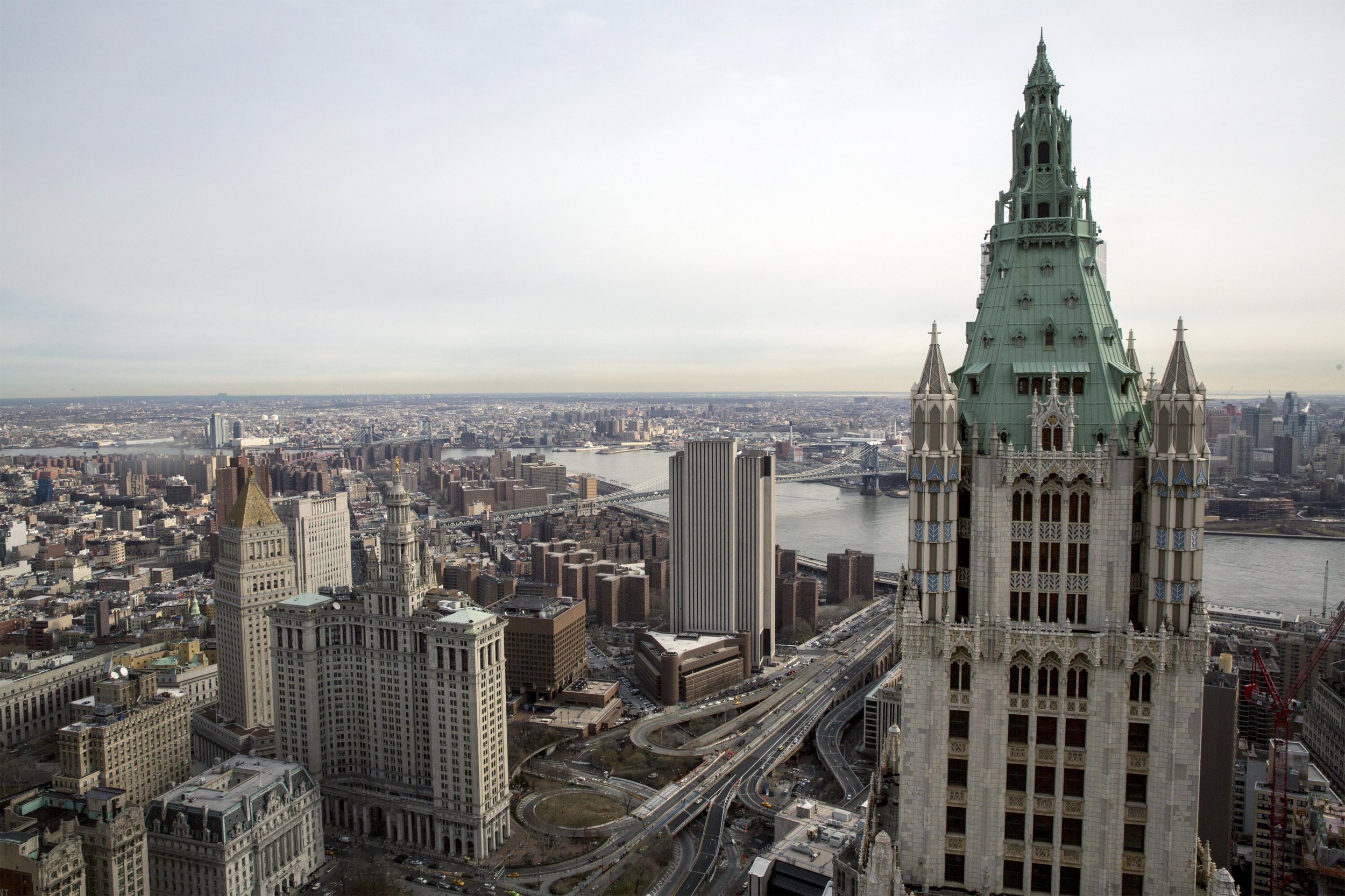
With Earth Day having just passed, I thought it might be appropriate to discuss one of mankind's most impressive accomplishments on this planet: New York City and the utter transformation of the muddy island of Manhattan and its surroundings into a living, gleaming testament to the power of trade, ingenuity and human cooperation.
The New York Times has posted a breathtaking video, soon to be displayed on the elevator walls of the new 1 World Trade Center, showing a 47-second time-lapse video of Manhattan's history, from the perspective of the rising elevator. In less than a minute, visitors going to the observation deck will travel 102 stories into the sky and 500 years through time.
What's remarkable is not only the buildings and the dynamic construction but also the physical transformation of the land itself: when European explorers first landed in North America, the place where the World Trade Center now stands was under water.
You might notice something else about the time-lapse: the pace of change slows dramatically toward the end. There have been a few new skyscrapers (notably the old Twin Towers, only briefly visible in the video, as well as the new Freedom Tower itself), but overall, Manhattan's evolution, the velocity of its creative destruction, has slowed.
It's not because New York is approaching perfection (as anyone who has ever paid for housing there can tell you), and the needs and demands of its residents are always changing. Why is the city so slow to keep up?
It's because the city government has deliberately calcified New York City, encasing the city's structures in a legal state of suspended animation to "protect" its "landmarks."
In 1965, the city passed the Landmarks Preservation Act, making it illegal to demolish or substantially alter any building that bureaucrats declare too important to change.
Reason's Jim Epstein explains:
The law made it illegal to destroy any structure that the city's planning elite deem too important not to save.
Today almost a third of the buildings in Manhattan, and more than 33,000 structures citywide, may as well be encased in a life-sized historical diorama. . . .
The landmarks commission not only protects individual buildings, but also 114 districts, meaning entire neighborhoods are essentially frozen in time.
If such laws had been in place in the 19th century, New York as we know it would not exist.
To illustrate the damage done by this law, let's imagine that the Landmarks Act had been passed not in 1965, but in 1865, when the spire of Trinity Church still towered over Lower Manhattan. Modern New York wouldn't exist.
Consider Henry Hardenbergh's original Waldorf-Astoria, which was an architectural masterpiece and Manhattan's leading luxury hotel. If the Landmarks Commission had been around in the Jazz Age, surely it would have protected this great structure—and then it never could have been torn down to build the Empire State Building, which occupies the exact same spot.
We can only imagine the city that we are missing out on now—all the invisible buildings, unbuilt skyscrapers and new landmarks that never were—because of bureaucrats standing athwart history, yelling: "Stop!"
For now, though, let's appreciate what people have accomplished on this Earth, in spite of the state's best efforts.
Daniel Bier is the editor of Anything Peaceful blog on the Foundation for Economic Education site, which is where this piece first appeared.
Uncommon Knowledge
Newsweek is committed to challenging conventional wisdom and finding connections in the search for common ground.
Newsweek is committed to challenging conventional wisdom and finding connections in the search for common ground.
About the writer
To read how Newsweek uses AI as a newsroom tool, Click here.








